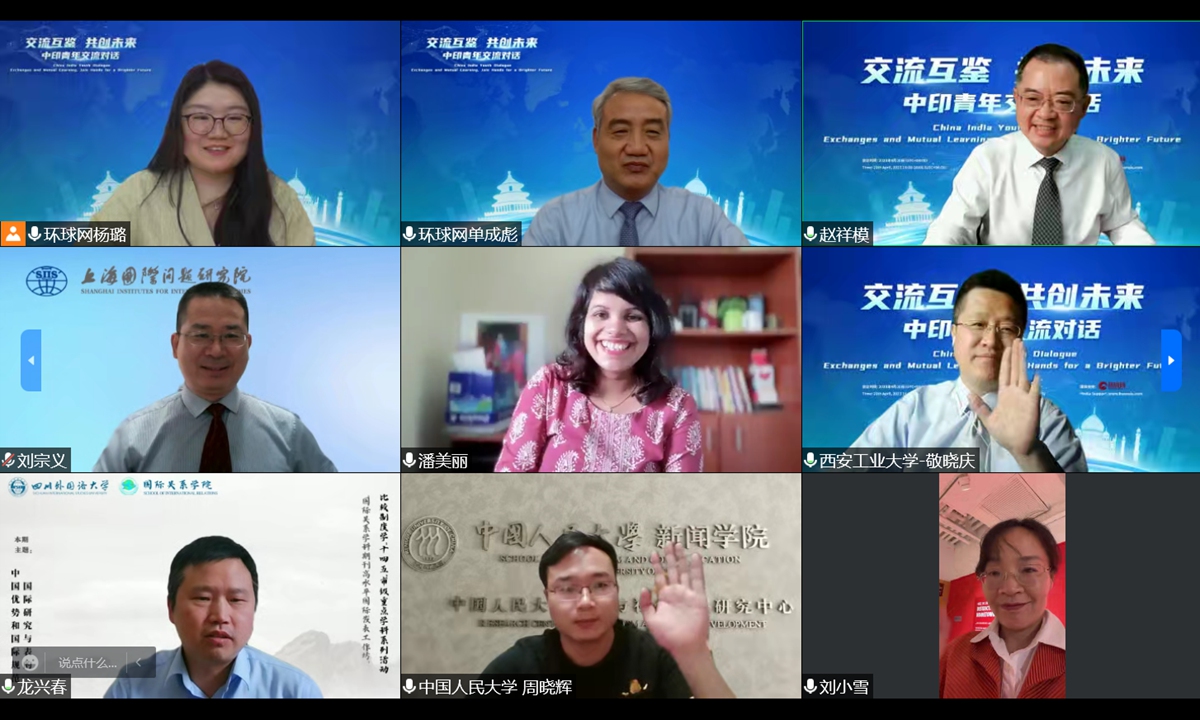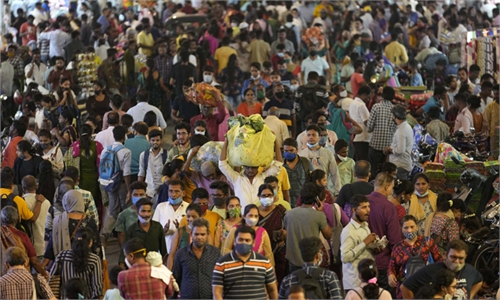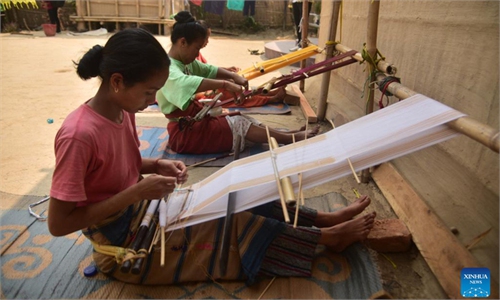
A screenshot of the event
An online conference under the name of "China-India Youth Dialogue: Exchanges and Mutual Learning, Join Hands for a Brighter Future" was held on Thursday under the joint organization of the Global Times and Xi'an Technological University (XATU). Ten experts and scholars from China and India attended the event, as well as dozens of students and teachers from XATU.
According to the conference host, the event aims to offer Chinese and Indian youth the opportunity to learn more about the development of China-India relations, deepening their understanding of both countries' history, culture, and social development.
Over the course of nearly two hours, Chinese and Indian scholars discussed China-India cooperation, emphasizing the importance of enhancing exchanges in areas such as education, culture, and the digital economy.
In his opening remarks, Liu Zongyi, secretary-general of the Research Center for China-South Asia Cooperation at Shanghai Institutes for International Studies, pointed out that the Chinese and Indian civilizations share a millennia-long history of cultural exchanges. Currently, the two countries have a shared interest in achieving cultural and national rejuvenation.
Liu said that the Indian business and cultural communities are relatively friendly to China compared to the strategic community. Therefore, the two countries should focus on maintaining and strengthening cooperation in these areas in the future, making it a stabilizer in bilateral relations.
In this context, Chinese and Indian youth play a crucial role. Long Xingchun, a professor at the School of International Relations at Sichuan International Studies University, said that the current level of exchange and learning between Chinese and Indian youth is not as high as China's with other major countries.
The Chinese expert hopes that the Chinese and Indian governments will continue to create conditions for youth exchanges, allowing young people to serve as a bridge for enhancing mutual understanding, exchanges, and friendship between the two nations.
Echoing Long's point of view, Vivek Mani Tripathi, an assistant professor in Indology at Guangdong University of Foreign Studies, added that there is no fundamental conflict between China and India. The border disputes between the two countries, for example, can be resolved through dialogue, he said.
Tripathi added that while Western media often compares China and India, the two countries should move beyond this viewpoint. Instead, they should focus on their own capabilities and promoting bilateral cooperation, fostering mutual learning and shared development.
"The population of India and China now consists of more than 30 percent of that of the world, which means together, the two countries have the largest youth population and market in the world. If the two countries cooperate more, we can make the 21st century the China-India century," said Tripathi.


